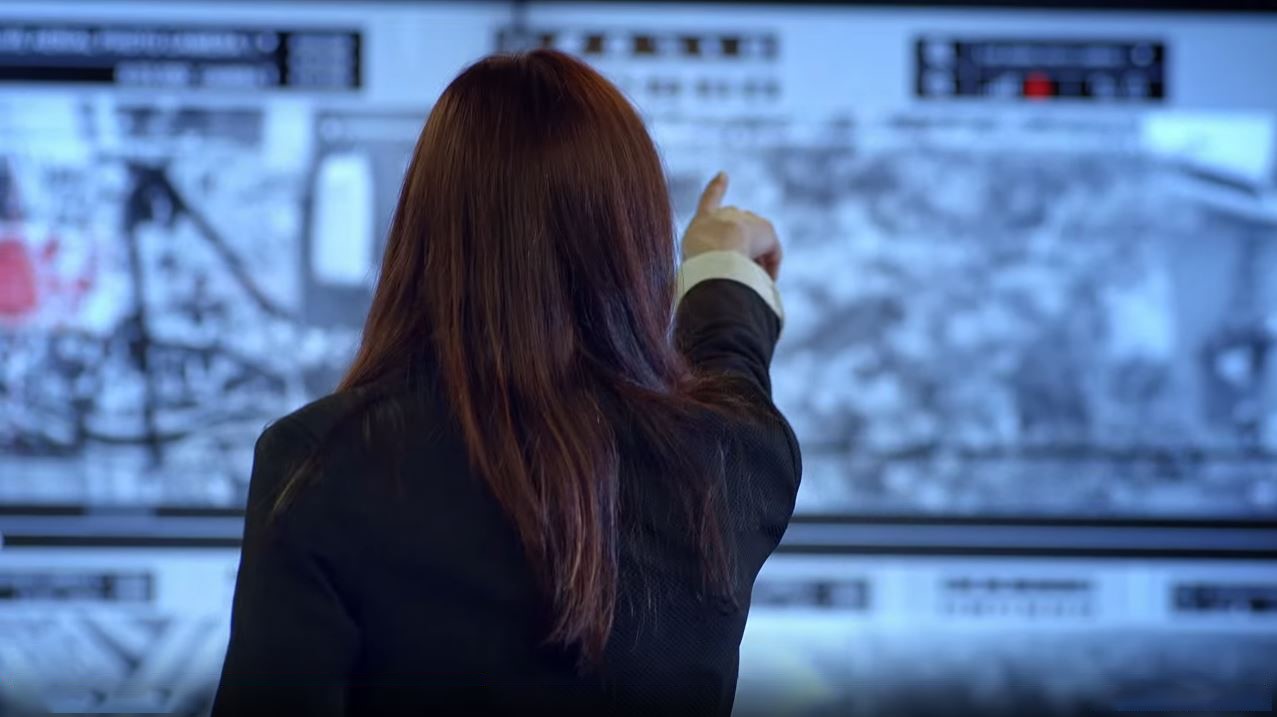In a blow to the far-right government, Israel’s High Court of Justice handed down a ruling on Sunday evening, April 26, that the state must pass legislation if it wants to continue the surveillance of citizens and others possibly infected with COVID-19 by its internal Security Agency (“Shin Bet”).
In their decision, the justices ordered Prime Minister Benjamin Netanyahu’s government to pass legislation that will regulate the use of the tracking tools. The surveillance program has been severely criticized since it was first implemented shortly after the health crisis began in Israel nearly two months ago. However, the court also ruled that if the legislative process were begun, it would be possible to extend for a limited period the use of the security service in efforts to stem the spread of the virus.

Shin Bet agent tracks people using their cellular phone activity. (Footage: Israel Security Agency on Youtube)
The judicial panel which made the unanimous ruling was composed of Chief Justice Esther Hayut, Deputy Chief Justice Hanan Meltzer and Justice Noam Solberg. The three judges consolidated into one hearing four petitions submitted by the Joint List and Adalah – The Legal Center for Arab Minority Rights in Israel, ACRI – The Association for Civil Rights in Israel, the Journalists’ Union and Attorney Shahar Ben Meir.
Chief Justice Esther Hayut wrote regarding the decision: “We must keep watch so that the unusual events we are dealing with these days do not lead us down a slippery slope where such unusual invasive measures are used without justification.”
According to the ruling, “the Shin Bet will not be certified to aid the fight against the coronavirus” from April 30. The High Court also restricted the Israel Security Agency’s surveillance of journalists in order to preserve the confidentiality of journalistic sources. According to the ruling, a journalist diagnosed with the coronavirus will have to give consent to the disclosure of their details to the Shin Bet and will be given the opportunity to oppose such a disclosure in front of a judge.
The Joint List and Adalah filed a petition to the Israeli Supreme Court on Sunday, April 5, against Israeli Prime Minister Benjamin Netanyahu, the Shin Bet intelligence service, the police, and the Health Ministry, demanding answers regarding the Shin Bet’s involvement in the struggle against the spread of the coronavirus.
In the petition, Adalah attorneys Suhad Bishara and Hassan Jabareen demanded the state explain why: (1) it is not repealing the emergency regulations authorizing the police to exploit the cellular location data of Israeli citizens; (2) it is not repealing the amendment to the emergency regulations authorizing the Shin Bet to participate in the national effort against coronavirus; and (3) it is not cancelling the government’s March 31 resolution which extends the Shin Bet’s powers to gather private information on Israeli citizens and residents as part of efforts to combat the coronavirus pandemic.
Adalah and the Joint List argued in their amended petition that the emergency regulations in question were formulated without legal authority and in contravention of Israel’s Basic Law: Government. Further, they argued that the government’s decision authorizing the expansion of the Shin Bet’s power to gather information on citizens and residents regarding the fight against coronavirus constitutes an extreme deviation from the agency’s authority and runs contrary to its purpose as defined by Israeli law. The petitioners also argued that the violations of the constitutional rights to privacy and dignity in this case are very invasive, dangerous, and grossly disproportionate.
According to Attorney Bishara, “The Israeli government decision expanding the authority of the Shin Bet to allow surveillance of private citizens and residents for civilian purposes is very dangerous. According to Israeli law, the Shin Bet’s scope of authority is limited only to security-related issues. Allowing the Shin Bet to employ its secret, unsupervised methods in civilian affairs could create a dangerous slippery slope that might pave the way for its intervention in additional civilian realms.”


